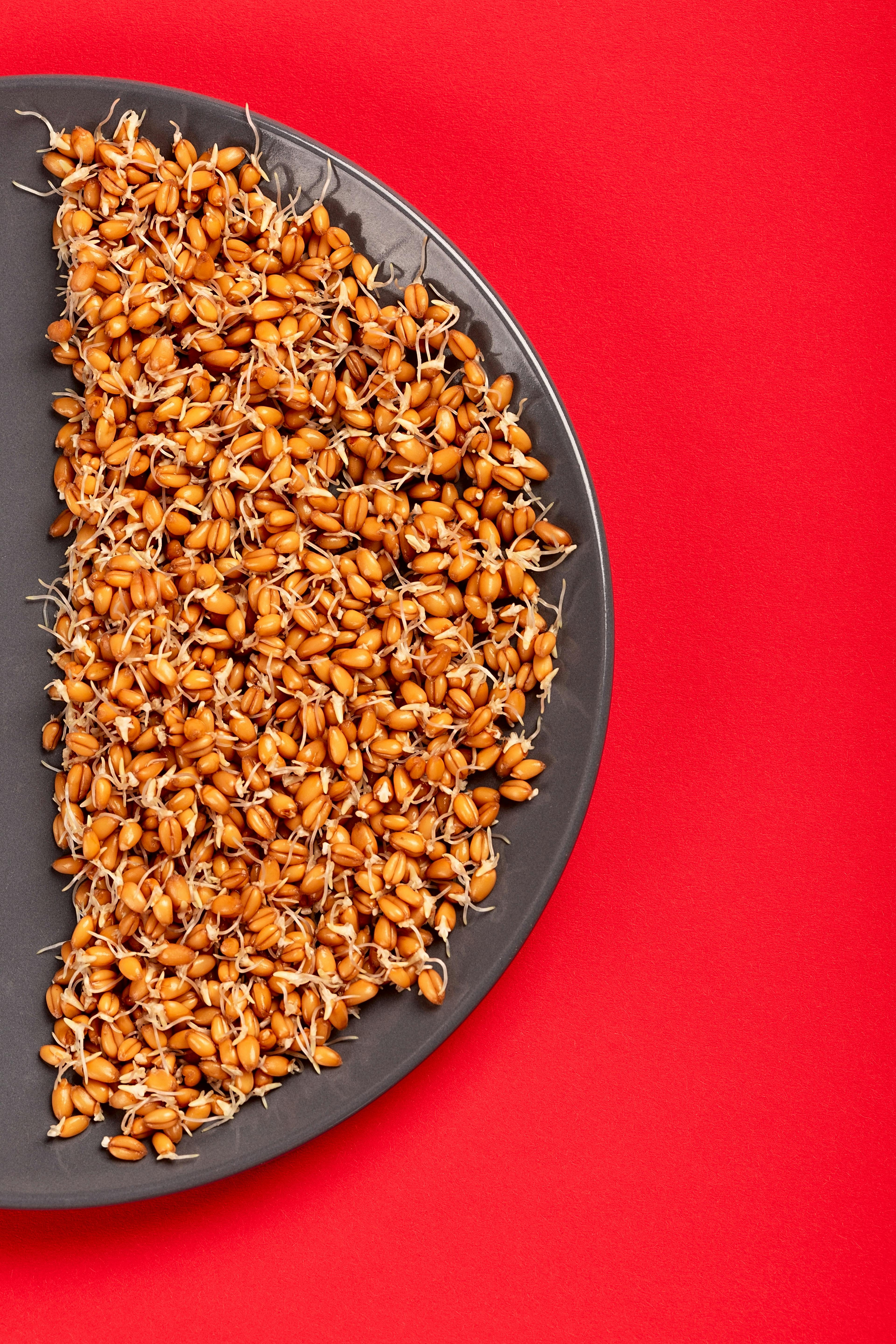Smart Guide to the Rastafarian Diet: Explore Ethical Eating in 2025

Essential Guide to the Rastafarian Diet and Ethical Eating
The Rastafarian diet, often referred to as the Ital diet, emphasizes a deep connection between spirituality, health, and ethical eating. This diet not only highlights the importance of ingesting natural foods but also celebrates the vibrant culinary traditions of Rastafarian culture. For those exploring how to integrate the values of conscious consumption into their lives, understanding the principles of the Rastafarian diet can provide valuable insights into plant-based nutrition, seasonal eating, and the spiritual significance of food. This article provides a comprehensive overview of the Rastafarian diet, details vegetarian meals, and offers practical pointers on embracing a holistic lifestyle that prioritizes wellness and community.
As we delve into the components of this flavorful and nourishing lifestyle, expect to gain knowledge about the various food rituals, ethical agriculture, and the historical context of the Ital diet. We will explore traditional recipes that celebrate the rich variety of fruits, vegetables, whole grains, and legumes available in many regions, alongside valuable tips for preparing and enjoying these meals in ways that align with Rastafarian beliefs. Additionally, you’ll find advice for mindful meal times that promote community gatherings, making every meal a celebration of love and gratitude.
Join us on this journey through the Rastafarian diet — a way of life that nourishes not just the body, but also the spirit and community. By the end, you’ll be equipped with a deeper understanding of ethical eating and its impact on personal health and the environment.
Understanding the Foundations of the Ital Diet
Building on the dietary principles of the Rastafarian culture, the Ital diet arises from a blend of traditional and ethical considerations. This journey into the heart of the Ital diet allows individuals to connect with food not only on a nutritional level but also as part of a larger spiritual and cultural narrative. The Ital diet advocates for vegetarian meals rich in organic produce, offering a sanctuary for those seeking to follow dietary habits that resonate with their values.
Core Principles of the Rastafarian Diet
At the core of the Rastafarian diet is the principle of consuming natural, unprocessed foods. The emphasis on vegetarian meals is a statement against the consumption of animal products that may contribute to health issues and ethical concerns surrounding food production. To Rastas, food is not merely sustenance; it is a way of life. The diet embraces fruits, vegetables, whole grains, legumes, and healthy fats, creating a nutrient-rich, balanced diet.
Another important aspect of the Ital Diet is the focus on local ingredients and seasonal eating. By sourcing food from local farmers or community gardens, adherents to the Rastafarian lifestyle ensure their meals are not just fresh but also sustainable. This approach to eating not only supports local economies but also promotes ecological health, emphasizing the idea of eating from the earth carefully and mindfully.
Planning Your Meals with Nutritional Balance
Meal planning within the Rastafarian framework focuses on achieving nutritional balance while celebrating the diverse flavors of plant-based living. Many Rastafarians incorporate herbal remedies and fresh herbs into their meals for enhanced health benefits. Utilizing spices and flavors that offer both enjoyment and nourishment, culinary practices are both traditional and innovative. Whether it’s a celebration with community meals or simple family gatherings, meal presentation and enjoyment play crucial roles.
Mindful meal times allow families to share their gratitude for food, connecting spiritual beliefs with daily living. For many, cooking becomes a practice rooted in love and connection, transcending mere dining into a form of spiritual expression. Thus, the Rastafarian diet transcends dietary restrictions and becomes a holistic experience where the journey of food from its source to the plate takes on profound meaning.
Exploring Traditional Recipes and Culinary Practices
With these fundamentals established, we will now dive into some traditional recipes that exemplify the essence of the Ital diet. These dishes celebrate the dynamic range of ingredients found in nature while embodying the cultural significance surrounding meals within Rastafarian communities.
Classic Ital Dishes: Comfort Food with a Twist
Classic Rastafarian meals are typically rich in vegetables and legumes, contributing to both comfort and nourishment. Dishes such as Ital stew, featuring various tropical vegetables and spices, showcase the vibrant flavors that define the Ital diet. Not only are these meals delicious, but they resonate with the philosophy of eating for health and happiness.
Another popular option is the callaloo dish, prepared with fresh greens sautéed with garlic, onions, and tomatoes. This dish is not only a staple in many Caribbean households but also embodies the principle of using local, seasonal ingredients. When preparing these meals, the emphasis remains on the cultivation of flavors without the need for artificial additives, further enhancing the integrity and simplicity of food.
Embracing Food as Medicine
The belief that food acts as a form of medicine is deeply rooted in Rastafarian culture. This principle advocates for cooking techniques that retain the nutritional value of produce. For instance, steaming or lightly sautéing vegetables rather than deep-frying allows for the retention of nutrients while minimizing unhealthy fats.
The use of detoxifying foods such as ginger and turmeric provides additional health benefits, often implemented through herbal remedies. The emphasis on holistic approaches to health culminates in the belief that one’s diet should foster a strong immune system and contribute to overall wellness. This connection of food and health dovetails with the Rastafarian commitment to living harmoniously with nature.
Mindful Eating Practices in Rastafarian Culture
This naturally leads us to the importance of mindful eating within Rastafarian culture. In a world where food often becomes an afterthought, the Ital diet encourages conscious consumption that respects not only the ingredients but also the processes involved in food preparation.
The Spiritual Connection with Food
Rastafarians view food as a sacred element that nourishes the body and spirit alike. Engaging deeply with the act of cooking and sharing meals with loved ones fosters a sense of community and gratitude. Ritualistic elements often accompany communal eating, creating a nourishing atmosphere that emphasizes spiritual reflection and appreciation of nature’s bounty.
Food rituals can include offerings and prayers before meals, bridging the gap between nourishment and spirituality. Preparing dishes with intentionality creates a deeper connection to the ingredients, allowing individuals to appreciate the cycles of agricultural practices and the earth’s resources.
Seasonal Eating and Food Ethics
Seasonal eating, a key tenet of the Rastafarian diet, prompts individuals to align their eating habits with the changes in nature. Sourcing food from local farmers not only supports sustainable agriculture but also reinforces the notion of environmental stewardship. This complements the broader ethical considerations in food sourcing, leading to a more responsible relationship with what we consume.
Engaging with seasonal produce encourages creativity in the kitchen. It allows cooks to experiment with flavors while maintaining respect for the earth and its cycles. By embracing this practice, Rastafarians embody the virtues of clean eating practices, mindful consumption, and self-sustaining living.
Practical Tips for Embracing the Rastafarian Diet
Connected to these principles, it’s essential to explore practical guidelines for adopting a Rastafarian-inspired lifestyle focused on healthy eating habits and wellness practices.
Meal Prep for Balanced Nutrition
Planning meals around the availability of local ingredients ensures that you utilize the freshest produce for optimal health. Aim to create menus that include an assortment of fruits, vegetables, whole grains, and legumes. Incorporating raw foods into your diet can also provide light and refreshing meal options that are packed with nutrients.
Additionally, cooking methods should be chosen wisely. Emphasizing steaming and sautéing instead of frying can help maintain the integrity of ingredients while maximizing health benefits. Consider experimenting with fermentation techniques which can add both flavor and health benefits to meals.
Community Meals and Engagement
Sharing meals within the community is an integral aspect of the Rastafarian diet. Consider organizing gatherings that celebrate local culinary traditions, allowing participants to bring their favorite dishes. This practice not only connects individuals to their cultural roots but fosters social bonds within the community.
Engage in cooking classes that inspire the crafting of traditional recipes with modern twists. Learning about the origins of ingredients and their preparation can enhance appreciation for the meals prepared while maintaining a respectful approach to food consumption.
Conclusion: Nourishing Body, Mind, and Spirit
The Rastafarian diet transcends mere consumption; it embodies a spiritual relationship with food that nourishes not just the body, but also the heart and community. Through the principles of the Ital diet, individuals can explore the benefits of vegetarian meals, holistic living, and ethical eating practices. By embracing this conscious approach to nutrition, we can cultivate a more profound connection to what we eat, respecting the cultural traditions that shape our choices.
As we move forward into a world that values sustainability and health, the lessons drawn from Rastafarian culture provide a roadmap for creating a balanced lifestyle where food serves as medicine, joy, and a bridge to community ties.

